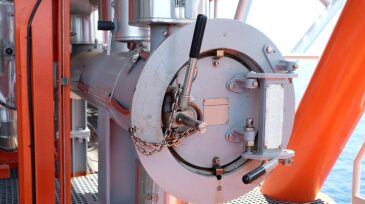Flow assurance
The authors of this paper describe a project to develop a virtual sensor to monitor the cooling effect downstream of a subsea choke to avoid hydrate plugs during cold-start operations.
Subject-matter experts from industry and academia advanced distributed fiber-optic sensing technologies and their implementation in flow measurement during a special session.
This paper reports the observation of stealth asphaltenes, a potential flow-assurance issue, by means of experimental analysis.
-
When the underlying cause of flow-related issues on offshore projects is unknown, an expert said an investigation of fluid flow behavior based on an understanding of the first principles of flow assurance is necessary.
-
Natural-gas-infrastructure reliability is critical for the energy sector. When capitalizing on old pipelines to transport natural gas, operators run the risk of partial blockage. In this study, the authors develop a multirate test method to detect partial blockage in a gas pipeline.
-
Subsea tieback of a new field to an existing offshore production facility is one option to minimize development costs.
-
This paper describes a new direct electrical heating method in flexible-pipe systems. The method effectively expands the operational envelope of flexible unbonded pipes with greater control of hydrate plugs and wax precipitation by distributed heating along the entire pipe length,
-
Medium-voltage electric heating systems offer reduced installation cost and increasing efficiency for multimegawatt oil and gas heating applications compared with low-voltage systems. For offshore applications, the systems offer the added benefit of both space and weight reductions.
-
Thermoplastic composite pipe (TCP) is a spoolable, fully bonded pipe with glass or carbon-fiber reinforcements. While most often used in deep water, the combination of a solid wall, spoolability, and corrosion resistance makes TCP attractive for production-flowlines in shallow water also.
-
A presentation from the 2016 Gulf of Mexico Deepwater Technical Symposium examines a testing strategy to determine the effectiveness of paraffin inhibitors.
-
This paper presents a state-of-the-art review of scale-inhibitor-analysis techniques and describes how these techniques can be used to provide cost-effective scale management.
-
An experimental study was conducted by use of a 6-in.-inner-diameter facility to analyze three-phase stratified wavy flow in horizontal pipelines.
-
In trying to reduce the footprint of facilities, operators often select the wrong piping components, hampering the performance. Selection of the right piping can avoid separation issues.













